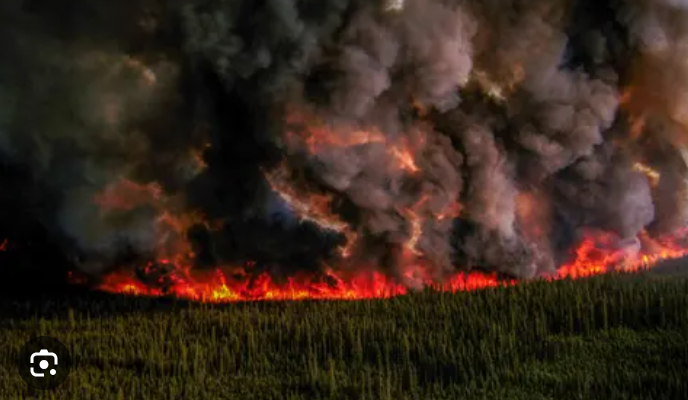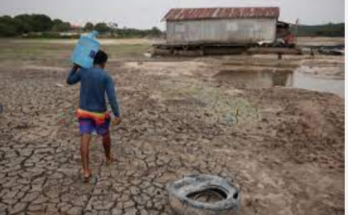Canada’s Wildfire Carbon Emissions Reach Record High in First Six Months of 2023
Canada is facing a severe environmental crisis as the country’s wildfire carbon emissions have reached an all-time high during the first six months of 2023. As wildfires continue to ravage various regions across the country, the resulting carbon emissions pose a significant threat to both the environment and human health.
According to data released by the Canadian Wildfire Service, the total carbon emissions from wildfires in Canada during the first half of 2023 have surpassed any previous records. The wildfires have been particularly devastating in British Columbia, Alberta, and parts of the Northwest Territories.
Scientists and experts attribute the unprecedented increase in carbon emissions to a combination of factors, including climate change, prolonged droughts, and forest management practices. Canada has been experiencing warmer and drier conditions in recent years, which create a favorable environment for wildfires to spread rapidly.
⇒Join us on Telegram for more Sure and Accurate football-winning tips every day...click here

The impact of these wildfires extends beyond the immediate destruction of forests and ecosystems. The carbon emissions released during the burning of trees and vegetation contribute to the overall greenhouse gas emissions in the atmosphere, exacerbating climate change. This vicious cycle, known as a positive feedback loop, further intensifies the frequency and severity of wildfires in the future.
The consequences of these record-breaking emissions are not limited to Canada alone. The smoke and pollutants produced by the wildfires can travel long distances, affecting air quality and human health in neighboring regions and even crossing national borders. The release of carbon dioxide, a major greenhouse gas, further contributes to global warming, potentially affecting climate patterns worldwide.
Government agencies and environmental organizations are working diligently to combat the wildfires and reduce the associated carbon emissions. This includes deploying additional firefighting resources, implementing stricter forest management practices, and investing in research to develop more effective fire prevention and containment strategies.
In addition to immediate firefighting efforts, there is a growing recognition of the need for long-term solutions. The Canadian government has pledged to strengthen its commitment to reducing greenhouse gas emissions and transitioning to a more sustainable and resilient economy. This includes accelerating the transition to clean energy sources, investing in reforestation programs, and implementing stricter regulations to minimize the risk of wildfires.
The situation serves as a stark reminder of the urgent need for global action to address climate change and mitigate its impact. Canada’s experience with record-breaking wildfire carbon emissions underscores the importance of adopting sustainable practices and developing strategies to adapt to the changing climate. It also highlights the need for international cooperation in combating climate change and protecting the planet for future generations.
As the wildfire season continues, it is crucial for individuals, communities, and governments to remain vigilant and proactive in managing the risks posed by wildfires. This includes taking steps to prevent wildfires, supporting local firefighting efforts, and advocating for policies that prioritize environmental sustainability.
The record-breaking carbon emissions from wildfires in Canada serve as a wake-up call, emphasizing the urgent need for concerted action to address climate change and its devastating consequences. Failure to act decisively now could lead to even greater challenges in the future as the world grapples with the escalating climate crisis.




